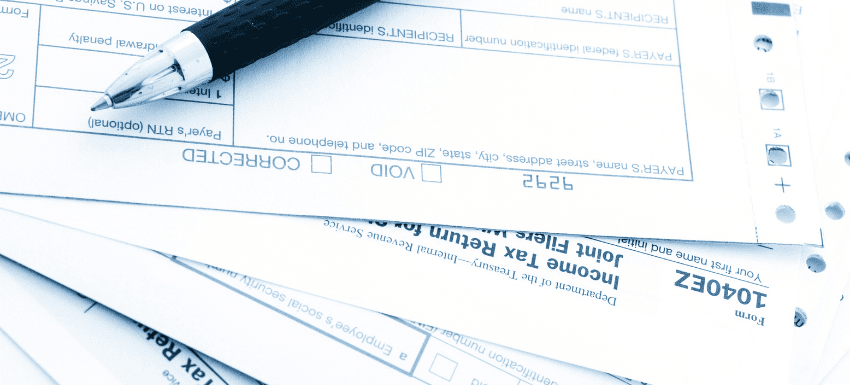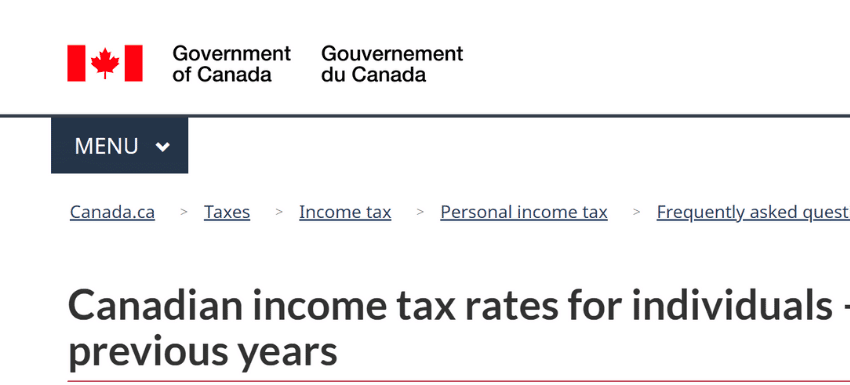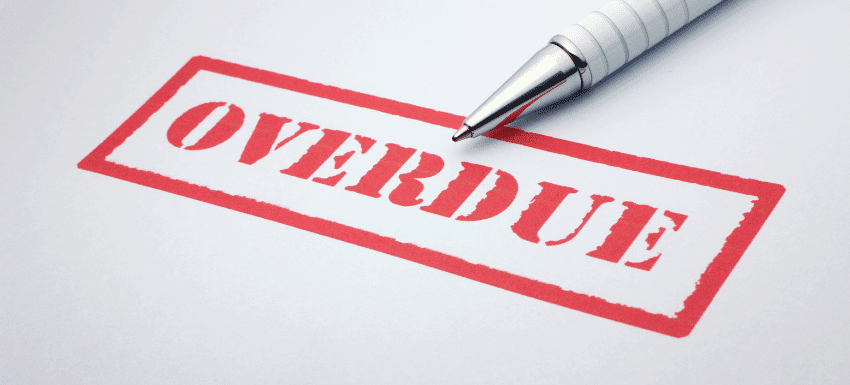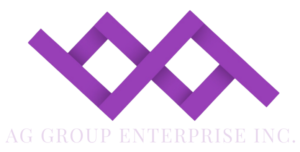
Get it right, from the start when it’s your First Time Tax Filing in Canada!
The saying “there’s a first time for everything” also applies to taxes! Whether you just got your first job and want to claim a refund or get the goods and services tax/harmonized sales tax (GST/HST) credit, or are a newcomer to Canada who wants to continue getting benefit payments, the Canada Revenue Agency (CRA) is ready to help.
Do You Need to File a Return?
The Canada Revenue Agency receives millions of income tax and benefit returns every year. Filing out a return allows you to determine how much tax you owe or if you’ll get a refund for taxes you’ve already paid. It’s still important to file a tax return, even if you didn’t earn any income in 2022, as you might be entitled to benefits and credits including the GST and HST credits, the Canada child benefit, and related provincial or territorial programs. In order to calculate your benefit payments, the CRA uses the information you provide on your return. For more information on benefits and credits, go to cra.gc.ca/benefits.
In general, if you are new to Canada and establish ties to the country, such as having a home and a spouse here, you are considered to be a resident for tax purposes on the day you arrive. Regardless of where you earned the income, as a resident you must pay taxes on it.
Completing a Return
Completing a return is not as hard as you might think. Look up Learning About Taxes on the CRA’s website, a self-paced learning guide that helps you to understand Canada’s tax system and prepare a simple income tax return.
Most Canadians are required to file their income tax and benefit returns by April 30. Due to the fact that that date is a Saturday in 2022, the CRA will consider your return to be on time and will make your payment if the CRA receives your submission by or no later than May 1. Tax returns for self-employed individuals and their spouses or common-law partners are due by June 15. However, if these individuals owe the CRA money, the amount owing must be paid no later than May 1.

CRA Online Services and Apps For First Time Tax Filing
NETFILE-certified software or a web application and your social security number are all you need to file online. You must enter the amounts from your various information slips and receipts on your return. Your slips and receipts do not need to be sent to the CRA. The CRA will contact you if it wants to review them. All receipts and slips should be kept for at least six years.
Using the CRA’s Auto-fill my return service and filing your return online can save you valuable time if you are registered with My Account with the CRA and using certain tax preparation software. By filling in certain portions of your tax return automatically, Auto-fill my return makes filing your taxes easier.
With e-filing and direct deposit, you can get your refund in as little as eight business days if you’re entitled to one. The easiest way to receive your payments is by direct deposit.
When you receive your assessment notice and have filed your return, you can register for the CRA’s online services or download the Mobile App. The CRA offers a variety of self-service options through My Account, MyCRA mobile app, and MyBenefits CRA mobile app. You can do this with your CRA user ID and password, or with a sign-in partner. With a few clicks, you can track the status of your return, apply for benefits and credits, update your address, check your RRSP and TFSA contribution limits, register for online mail, obtain a proof of income statement, and much more.

What Happens if You Don’t File your First Time Taxe Filling in Canada?
By law, you must file a tax return if you are required to do so. Having a tax debt isn’t a crime, but failing to file taxes when you are supposed to is. Every eligible Canadian must file income taxes every year.
Not filing a tax return = tax evasion = crime.
If you are behind on filing your returns, it would be considered tax evasion. Individuals or businesses who evade Canadian tax laws are considered to be engaging in tax evasion. By failing to file income taxes on time, you are ignoring Canadian tax law and the Canada Revenue Agency may consider you to be trying to evade taxes. Tax evasion is punishable by fingerprinting, court-imposed fines, prison time, and possibly a criminal record. Your reputation and future could be damaged.
Having a tax debt and owing money to the CRA (Canada Revenue Agency) is not against the law. However, not filing your tax returns is.
There are still possible ways that you can get hurt if you file taxes late in Canada, even if the CRA does not charge you with tax evasion. If you fail to file your taxes on time, the CRA may charge you penalties and interest. If you wait and do not file your tax return on time, you will incur large penalties and interest. There is even a possibility of prosecution.
In the case of repeatedly filing your taxes late (or not filing them at all), you will incur greater penalties. Your budget will be put under significant strain if you try to pay the CRA what you owe.
Regardless of whether you cannot afford to pay your tax debt, you should still try to file on time to avoid penalties.
CRA can estimate your income, expenses, and other amounts on your behalf if you do not file. Using this assessment, it can determine how much tax you owe. If the CRA is doing a Notational Assessment, they will look at all the information and make wild assumptions. Thus, they can estimate your tax debt, interest, and penalties, and proceed to collect the estimated tax debt.
It is in no one’s best interests to have this happen, so the easiest way to avoid it is to file your taxes on time.
What Happens if you File your Taxes Late?
There is no doubt that the Canada Revenue Agency is an extremely powerful agency. Canada’s federal government has given the CRA responsibility for administration of tax laws for all provinces and territories. Canadian taxation relies on self-assessment and mandatory compliance. Taxpayers are required to file their returns on time. Canadian residents and even non-residents can be required to file income tax returns under certain circumstances.
The failure to file taxes on time is a serious issue that should not be ignored. CRA charges significant interest and penalties for late filing.
The penalty for filing taxes late increases the longer you wait to file your return, so if you owe a lot of money and have waited quite a while to file, the penalty may be quite high.
On April 30th of each year, most taxpayers are required to file their returns. If an individual is self-employed, he or she has until June 15th to file, but if they have a balance owing, they must pay the balance by April 30th to avoid interest charges.
When your taxes are not filed by the deadline, the CRA charges you a penalty on May 1st as well as compound daily interest charges. You could still face financial consequences if you do not file your taxes, even if you do not owe money. Refunds will be withheld until you file and, even if you are not expecting a refund, any government benefits you are expecting (such as GST/HST benefits or child benefits) will probably be delayed until you file.
You may wonder how to file late tax returns if you fail to file your tax return on time. It’s easy to file your return if the tax return is less than a year old: just do it as you always would. Complete the form and mail it in. You will be notified if you owe tax or if the CRA assesses a penalty for late filing your tax. The NETFILE service remains open for many months after the deadline, so you can submit your taxes using this service.
You may also qualify for the CRA’s Voluntary Disclosure Program (VDP) if your tax return is older. Taxpayers can use this program to correct their taxes or to file returns that weren’t filed on time. You will still have to pay your taxes (plus interest, if applicable) if you are accepted into the VDP, but you will be relieved of penalties and potential prosecution. Despite these changes, it’s important to note that those who the CRA believes willfully avoided their tax obligations will not be entitled to the same relief as those who made an unintentional error. Therefore, it is important to consult a professional before applying for the VDP.
Late Tax Return Penalty

As mentioned, the CRA is very serious about the deadlines it sets. There will be penalties for taxpayers who fail to comply with these deadlines and file taxes on time.
In the event that you file your taxes late, the CRA may charge you a late filing penalty. In addition, if you fail to pay a balance owing, the CRA will charge compound daily interest on the unpaid amount beginning the day after your return is due. The deadline for most people is usually May 1st, since tax returns are typically due by April 30th. Due to this daily interest rate, the longer you delay paying your tax debt, the more expensive it becomes. However, the CRA does not charge interest exclusively on outstanding debt. It also penalizes taxpayers who file their taxes late.
Tax returns filed late are subject to a penalty of 5% of the tax year’s balance owing plus 1% for every full month the return is late. However, this only applies if you have recently filed your taxes on time. You may be charged a higher penalty if you frequently file late. This is designed to discourage late filing.
Also, keep in mind that penalties and charges aren’t the only possible outcome if you do not file your taxes on time. As mentioned, if you don’t file your tax returns, the CRA could consider your actions to constitute tax evasion. This is a very serious charge and one that you do not want to find yourself faced with. Ag Group Enterprise Inc. can help you if you are in a situation where you may be charged with tax evasion. Contact our team right away if you are in this situation.
Protect Yourself When It’s Your First Time Tax Filing in Canada!
Protect yourself against phishing and other types of fraud that could lead to financial or identity theft as tax season approaches. CRA does not send email messages that contain links you did not request, ask for personal or financial information by email or text message, or request payments by prepaid credit card. You can find examples of current scams on the Fraud Prevention page of the CRA’s website, as well as information on how to detect and avoid them. As soon as you register for CRA’s online services, you can sign up to receive account alerts.
You can get assistance with your tax return through the Community Volunteer Income Tax Program if your income is modest and your tax situation is simple. Local community organizations offer free tax preparation services.
There’s no reason to put off filing your income tax and benefit return this tax season when you have so many options available.
Move Forward With AG Group!
As tax season approaches, protect yourself from phishing, as well as types of fraud that could lead to identity theft or financial theft. The CRA does not send any emails with a link that you did not ask for, request personal or financial information of any kind by email or text message, or ask for payments by prepaid credit card.
If you are a first-time taxpayer in Canada, it is natural for you to be confused. In order to smoothly complete your tax filing process, hire AG Group Enterprise Inc. We have been providing tax help, investment advice, and business advice for over a decade and have the skills and knowledge required to help you through the ordeal of filing your taxes.
With AG Group’s help, you can protect the future of your family and your finances.



